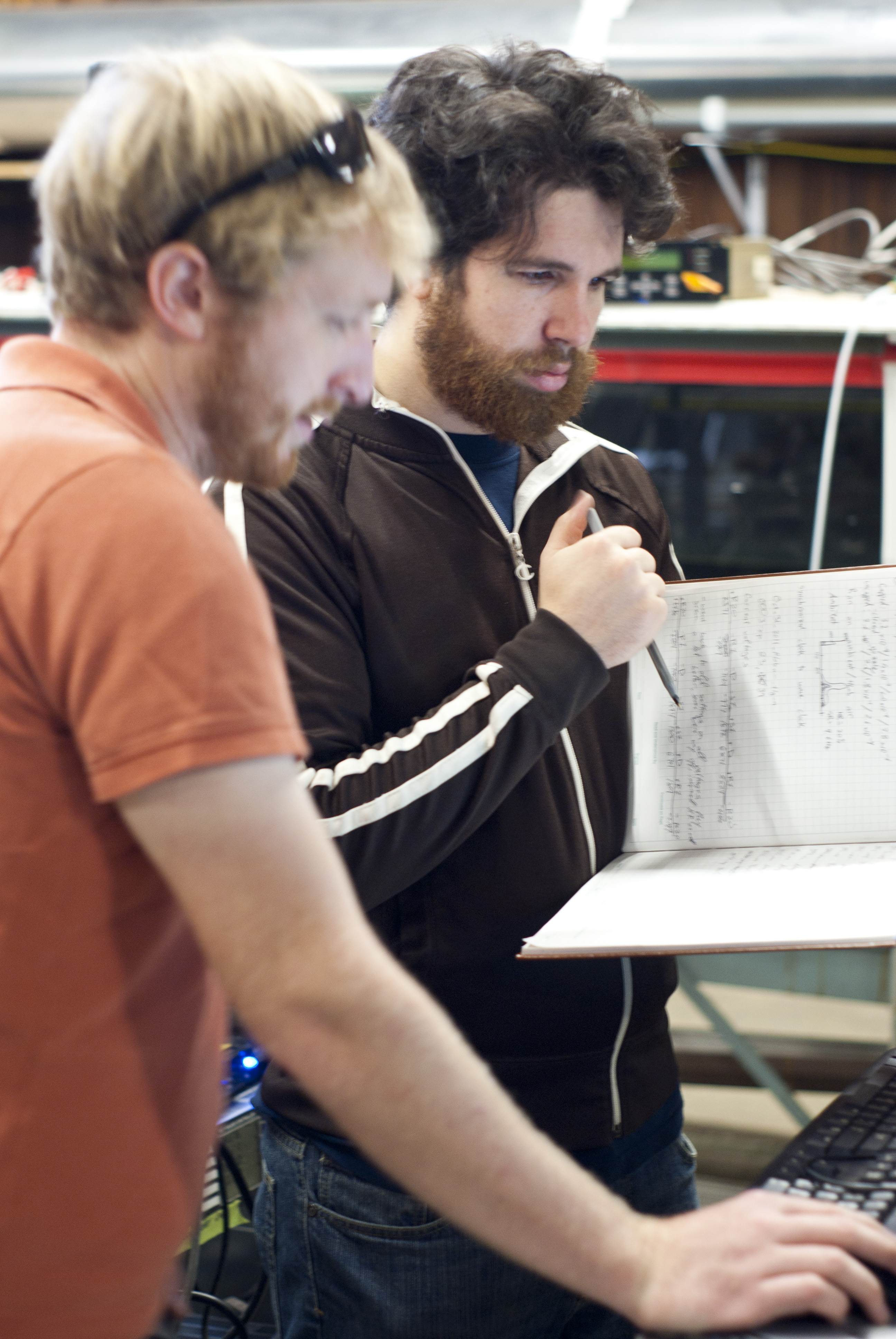As I sit down to write this I have just started draining the water from the tank one final time…what an experience the last few weeks have been. I feel privileged to be the last non-professor to be able to write about my experience during the CAICE intensive for this blog, as in my opinion it is an honor to be able to write the concluding remarks for the group of fantastic undergraduates, graduates and postdocs that took part in this amazing study. As such though, it is difficult trying to narrow in on one topic to write about from the countless possibilities that have arisen over the intensive.

The author, postdoc Tim Guasco (back, UCSD), is examining single particle mass spectra as they are produced in real time by ATOFMS.
Some of these include:
-What it was like being a postdoc in a field of science that is different from my PhD and trying to learn on the fly, while also teaching about things in which I have more experience than the rest of the group.
– I could also write about how enriching it was to not only be taking part in my first “field” campaign, but also to be part of the group who was tasked with getting the logistics right before the intensive started and be part of the day-to-day running of the experiments.
-Another potential topic might be how amazing it was to be able to take part in such an awesome study with people from not just around the country, but around the world. There are few chances in most young scientific careers to be able to work in one place with such a diverse group of people. I was able to learn quite a bit in a rather short amount of time because of the discussions I had with people who all approach the same problem with a slightly different mindset.
The list of topics could go on, however, I am going to focus on how a unique a collaboration this truly was. In my opinion, large scale collaborations of this type are often overrated. The idea generally put forth is that big problems in science are now too vast for a scientist from just one field to be tackling on his or her own. To overcome this, a lot of really great scientists from all different areas and work to conquer the dilemma together. While this seems like the perfect solution, often times it fails for a variety of different reasons. These might be difficulty in finding the perfect person for the task at hand, or maybe finding that person but at an institution that is across the country, or also that sometimes other people are just hard to work with. That might seem like a strange thing to read on a blog that is about a large collaboration, but these feelings of mine are precisely why I feel like the intensive campaign, and CAICE in general, are so unique.
It is very rare to be at a place where there are wonderful atmospheric chemists, physical oceanographers, amazing marine microbiologists, etc. Also, let us not forget the 40 meter long wave channel that made this all possible. At a place like this, you can literally walk down the street, see someone from a different field and talk to them about what is going on. That person might then be able to provide a whole new perspective on the experimental setup and change things drastically for the better. I know, because a chance encounter just like this happened when our fearless leader, Prof. Kim Prather, happened upon Prof. Farooq Azam from the Marine Biology division at SIO. Prof. Azam was able to attend one of our daily meetings and his keen and unique insight set us on a completely different and far better course than was originally planned. Given the one-of-a-kind setting and resources, the only thing that could have doomed us to failure would be conflicts of personality. Luckily, everyone involved was so excited and proud to be a part of this intensive study that each and every person was willing to help out their fellow colleagues. Therefore, I am calling this one of those rare large scale collaborations that is actually a success. And the fact is, what people tend to say is true, the big problems in science in general are too vast for just one field, as such, when large scale collaborations of this type are successful, the knowledge gained is plentiful. This study made me realize why people hold these collaborations in such high regards, the rare times they work, they are fantastic.
Tim Guasco, Postdoctoral Researcher, Prather Research Group, UC San Diego

